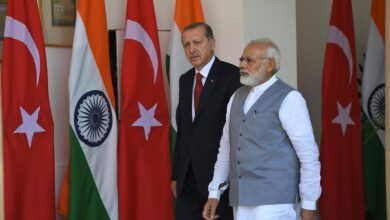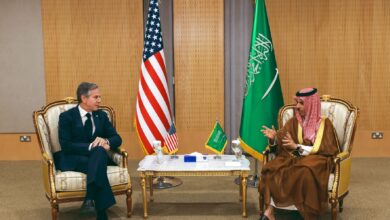Australia Supports UK’s Move to Restrict Arms Sales to Israel

Australia is working with the UK and other allies to “pressure” Israel in a bid to limit civilian Palestinian suffering in Gaza, as well as prevent the erosion of long-established norms protecting aid workers. The government has also explicitly supported the UK’s decision to limit arms exports to Israel, placing Canberra at odds with the US, which reportedly has privately warned Britain against the move.
The foreign affairs minister, Penny Wong, said: “Australia is working with partners – including the UK – to put pressure to see a real change in the situation in Gaza.” The latest comments are another sign of the hardening rhetoric by the Australian government about the Israeli assault on Gaza, where about 41,000 Palestinians have been killed in the past 11 months, and many more injured and displaced from their homes.
Some 1,200 people were killed in the 7 October Hamas-led attacks on southern Israel, and about 250 others were taken hostage, prompting the Australian Labor government to initially back Israel’s “right to self-defence.”
Labour has been under increasing political pressure from both the Greens and independent challengers in what were hitherto safe seats-and indeed, from its rank-and-file members take a harder line against Israel’s conduct.
Though it has called for an immediate humanitarian ceasefire since December, the Labor cabinet has so far resisted calls to describe Israel’s conduct as genocide and to impose sanctions against members of the Israeli government.
The UK foreign secretary, David Lammy, told the House of Commons last week the government would suspend 30 of the 350 existing arms licences to Israel because of “a clear risk that they might be used to commit or facilitate a serious violation of international humanitarian law.”
Wong backed the move. “I welcome the decision of my UK counterpart,” she told Guardian Australia on Monday night. “It reflects what we have been advocating throughout this conflict. Palestinian civilians cannot be made to pay the price of defeating Hamas.” Wong also repeated the assertion by the Albanese government that Australia “has not supplied weapons or ammunition to Israel” during the past five years at least.
“And earlier this year, we made clear that the only export permit applications approved for items to Israel are for those returning to Australia for our defence and law enforcement,” she said. This refers to temporary transfers for repairs and maintenance by Israeli firms.
When the Binskin report into the Israeli killing of the Australian aid worker Zomi Frankcom and six colleagues in Gaza was released, Wong said Australia would work with the UN and the international community to press Israel to reform its coordination arrangements with humanitarian organizations.
A source close to the discussions said the Australian government was working with countries that shared its concerns that “norms for the protection of aid workers are being eroded, with repercussions for current and future conflicts.” Australia is expected to say more about those concerns in the lead-up to the next UN General Assembly session.
It added that it also shares facts on the ground and assessments about compliance with international humanitarian law with other countries. Sources said the UK’s announcement on arms exports could provide the additional elements Australia was seeking. The US privately warned the UK against suspending arms sales amid claims it could hamper a ceasefire-and-hostage-release deal, according to a report published by the Times of London.
The degree of private discontent within the Biden administration about the UK decision is disputed. Still, one UK Foreign Office source said it was comparable to the US anger when David Cameron, as foreign secretary, said Israel should not have a veto on recognizing Palestinian statehood.
The Israeli prime minister, Benjamin Netanyahu, branded the UK government’s decision “shameful” and “misguided” and said it would “only embolden Hamas”. Netanyahu said it would not affect “Israel’s determination to defeat Hamas.” The UK suspension includes components for military aircraft, helicopters, drones and targeting equipment – but it excludes almost all UK components for the F-35 fighter jet programme.



